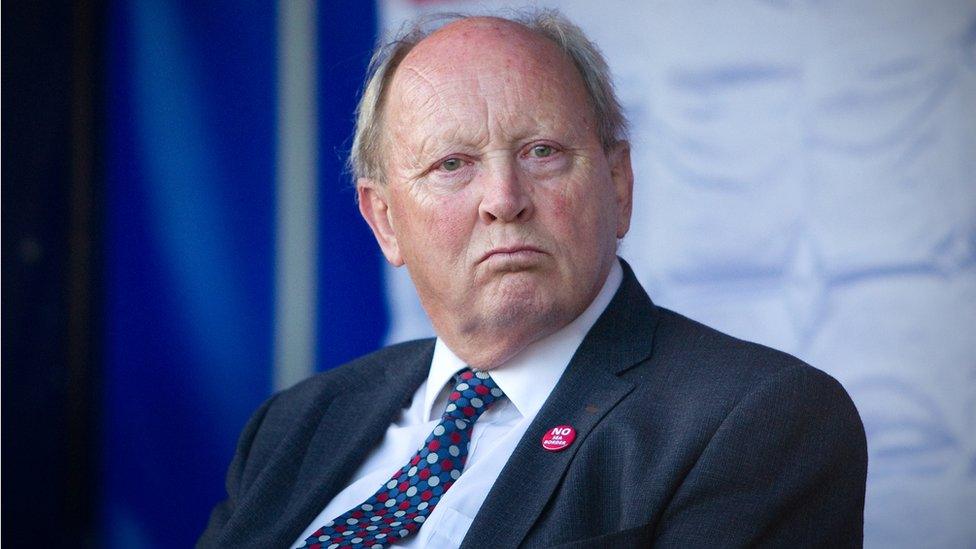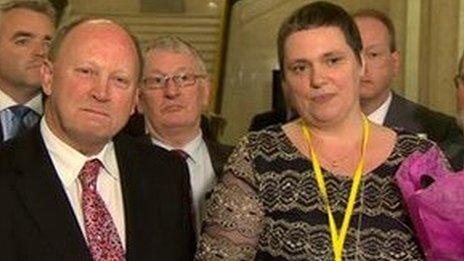MLAs reject ban on appointing those with serious convictions
- Published

Jim Allister said his bill was shaped by a moral compass and respects victims
The Northern Ireland Assembly has rejected a bill which sought to ban political appointees with serious convictions from sitting on public bodies.
The private member's bill was brought by the Traditional Unionist Voice (TUV) leader Jim Allister.
It was defeated at the second stage of its passage through the assembly by 48 votes to 40.
The vote means the bill has fallen and will not pass to the next stage.
If it had passed, the bill could have forced Sinn Féin assembly member Gerry Kelly to leave the Policing Board.
Mr Allister said the legislation was "shaped by a moral compass".
Mr Kelly was convicted on explosions charges related to the 1973 Old Bailey court bombing in London by the Provisional IRA, in which one person was killed and almost 200 people were injured.
The bill was similar to legislation the TUV leader brought and was passed in 2013 banning those with serious convictions becoming special advisers at Stormont.
The bill could also have removed Paul Kavanagh, a Sinn Féin nominee, from his role at the Education Authority.
Mr Kavanagh served 14 years in prison for killing three people in an IRA bombing campaign in England in 1981.
He lost his job as a special adviser to Martin McGuinness under the 2013 law.
Mr Allister said his legislation, which defined a serious criminal conviction as one which resulted in a prison sentence of five years or more, "respected victims".
- Published9 July 2013
